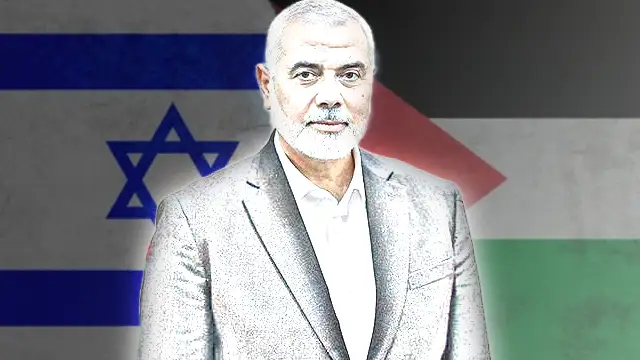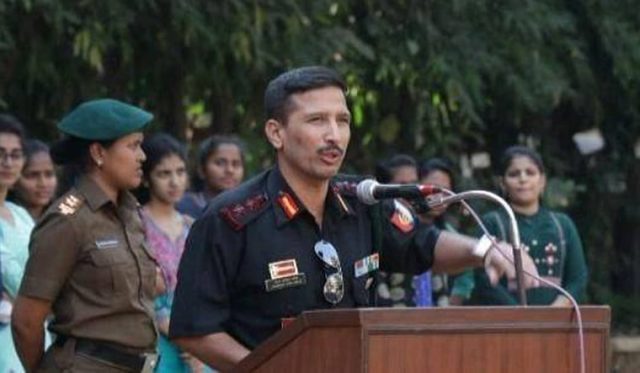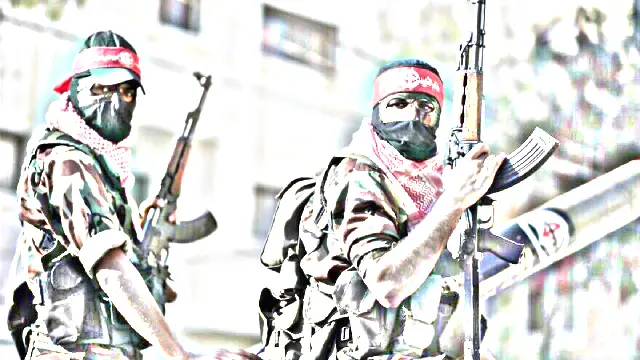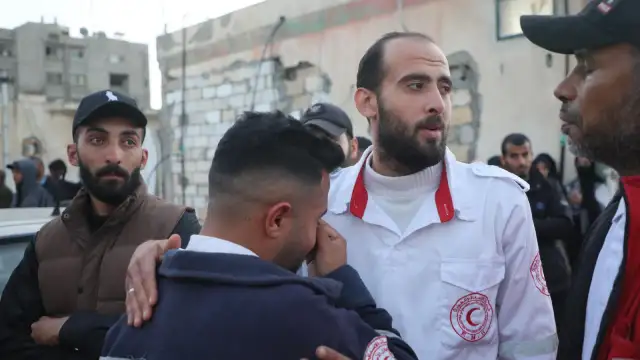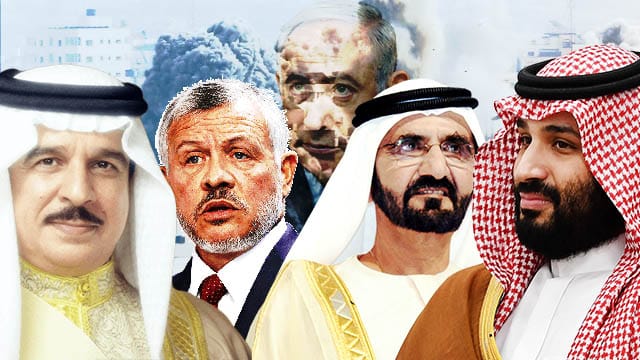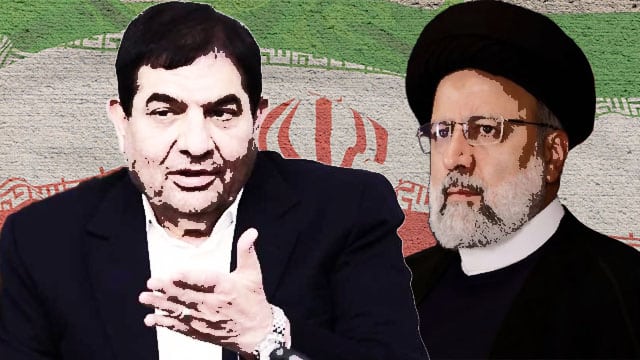In a big blow to Iran’s security once again, senior Hamas leader Ismail Haniyeh was assassinated, allegedly by Israel, in Tehran where he had gone to attend the Iranian President Masoud Pezeshkian’s inauguration on Wednesday. Notably, Mr Haniyeh’s assassination came within 24 hours of Israel’s killing of Fuad Shukr, a top military leader of Hezbollah, also backed by Iran, in Beirut.
Although the two killings have been attributed to Israel, the assassination of both Mr Haniyeh and Mr Shukr has a connection with Iran. While Mr Haniyeh was in Iranian territory, Mr Shukr’s Hezbollah has been backed by Iran. Does this highlight some serious lapses in the country’s security? Does Mr Haniyeh’s assassination raise a big question about Iran’s ability to safeguard its official guests in its territory from terrorists? Moreover, are these killings the only high-profile killings connected with Iran? What does this imply?
Haniyeh’s assassination follows a trend
It is noteworthy that Iran has seen a series of high-profile killings and security breaches, for the past few years. Mr Haniyeh, who was allegedly killed by Israel in a missile strike targeting the apartment he was residing in with his bodyguards, and Mr Shukr, who was killed in Beirut’s suburbs by an Israeli airstrike were the latest victims of Iran’s trend of such security lapses.
These assassinations follow the mysterious deaths of former president Ebrahim Raisi, his foreign minister, and other officials in a helicopter crash less than three months ago, highlighting Iran’s inability to protect its officials efficiently.
In April this year, two of the Iranian generals, Brig Gen Mohammad Reza Zahedi and his deputy Gen Haji Rahimi, were killed along with other long-serving diplomats in Damascus in an Israeli attack on Iran’s embassy in Syria.
In December 2023, Reza Mousavi, a senior Islamic Revolutionary Guard Corps (IRGC) Commander was killed in an Israeli airstrike on Western Syria.
In January 2020, Iranian military general Qassem Soleimani, along with his associate Abu Mahdi al-Muhandis, were killed in a targeted drone attack at the Baghdad International Airport in Iraq, for which the US took responsibility.
In November 2020, an Iranian nuclear scientist Mohsen Fakhrizadeh who was known as the father of Iran’s Nuclear weapon by the Israelis and the West, was assassinated by the Israeli secret service Mossad using a remote-control machine gun from outside the country.
These attacks on high-profile officials outline the fact that Iran’s security is feeble. On the contrary, recently China hosted all political and military leaders and representatives of the Palestinian Authority to bring them to one table, collaborate, and fight against the common enemy, Israel, collectively. With all Palestinian leaders in one place uniting against Israel, it would have been a feast for Tel Aviv’s assassins. Benjamin Netanyahu could not even think of breaching China’s security! However, Iran’s permeable security has led to big losses to the ‘Axis of Resistance’, and this time, Mr Haniyeh’s assassination has destroyed its reputation.
Security lapse highlighted through cyberattacks
Apart from the deadly consequences of Iran’s weak security system, the country has suffered multiple cyber attacks. In December last year, there was a cyber attack on petrol stations across Iran. Iranian state media reported that the hacker group, Predatory Sparrow, had claimed “cyberattacks against Iranian petrol stations, rail networks, and steel factories” in the past. However, the Iranian Civil Defense Agency said it was investigating the attack. The cyberattack was “in response to the aggression of the Islamic Republic and its proxies in the region,” reported the state TV news.
In May 2023, the Albania-based opposition Mujahideen-e Khalq (MEK) group hacked the Foreign Ministry website and revealed important documents, contacts of officials, and other confidential data. According to Iran International News, all the sites related to the ministry including the embassies and affiliated organisations were hacked. The landing page showed photos of Iran’s Supreme Leader Ali Khamenei and former president Raisi with red crosses over them. The group displayed slogans like “Death to Khamenei” on the pages.
After such governance and security lapses, where does Iran truly stand in the Middle East? Can Iran, which can’t protect its territory, officials, state guests and allies retain its position as a leading anti-Israel power base in the Middle East?
Iran and the Middle East, both in crisis?
After the recent setback for Tehran, with the loss of the face of Hamas and the resistance in the region, there is an erosion of trust in its security system and, hence, the sovereignty of Iran is in question.
A Middle-East analyst, listing the assassination of top officials writes on social media, “Iran is a weak country.”
Mr Haniyeh was the senior diplomat of Hamas who was negotiating the hostage deals and mediating for a ceasefire in Gaza where 38,990 Palestinian civilians as well as journalists have been killed in the ongoing genocide which has entered its tenth month. Mr Haniyeh’s assassination has brought condemnation from the UN states and global leaders, calling for efforts to prevent an all-out war in the region. Iran’s Ambassador to the UN Amir Saeid Iravanni called on the international community to punish Israel with sanctions.
However, the resistance groups of the Middle East as well as Iran have pledged not to let the blood of Mr Haniyeh and Mr Shukr be trampled. Hamas official Moussa Abu Marzouk called the assassination a “cowardly act” and the deputy head of Hamas Khalil Al-Hayya stated that the attack would “not go unpunished,” while his fellow official Sami Abu Zuhri iterated that the “grave escalation” would not let the resistance be deterred from its path.
Mr Netanyahu, who has been attacking Syria, Lebanon and Gaza, has been calling the regional countries to join an alliance, which it calls the ‘Abraham Alliance’, to counter Iran.
Experts assert that since Mr Haniyeh’s assassination, the tensions in the Middle East are most likely to rise with Iran facing Israel and more bloodshed taking place. If such a situation occurs, will Tehran face the latter strongly despite the security lapses in its territory or will it step back?
A journalist interested in national and international news. She aspires to highlight the common people's concerns through human interest stories and deep-dive articles on geopolitics.

